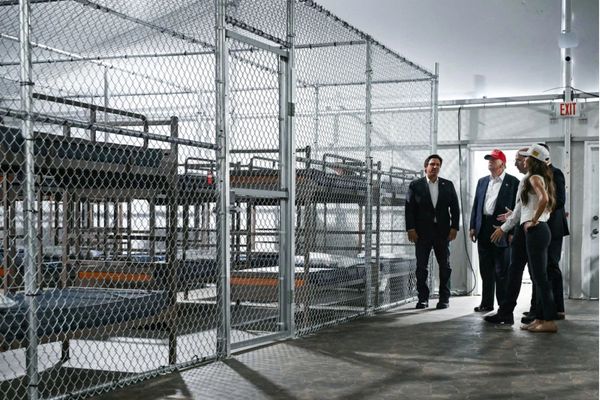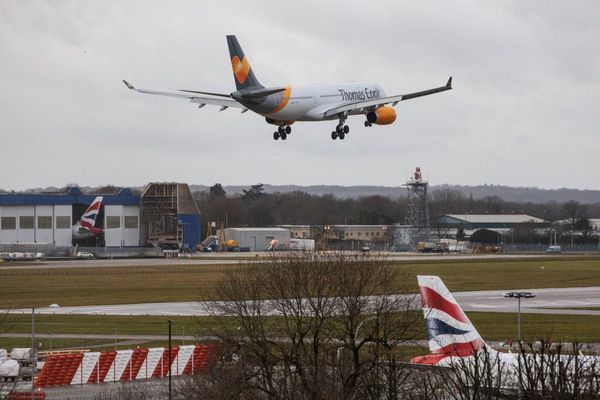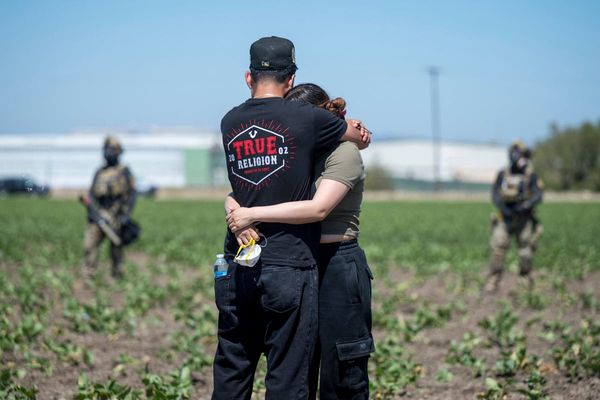Australia has said it will not commit troops to any conflict in advance, responding to Pentagon queries asking the US ally to clarify what role it would play if China went to war over Taiwan.
Prime minister Anthony Albanese said that his country did not support “any unilateral action” on Taiwan and that its spending on both defence and aid was “about advancing peace and security in our region”.
“We have a clear position and we have been consistent about that … We don’t want any change in the status quo,” he said on Sunday, the first day of his visit to China.
His remarks come shortly after Australian acting defence minister Pat Conroy said that Australia prioritises its sovereignty and “we don’t discuss hypotheticals”, speaking to the Australian Broadcasting Corporation on Sunday, highlighting that such military decisions cannot be made in advance.
“The decision to commit Australian troops to a conflict will be made by the government of the day, not in advance but by the government of the day,” he said.
His remarks come in the wake of pressure from Elbridge Colby, the US undersecretary of defence for policy, on Australia and Japan to clarify their military commitments in the event of a conflict over Taiwan.
In May, US secretary of defence Pete Hegseth reiterated the Pentagon’s timeline for a potential Chinese invasion of Taiwan. He warned that China was “credibly preparing” for military escalation to upend the balance of power in Asia, with an invasion expected by 2027. He also vowed that the US was “here to stay” in the Indo-Pacific region.
US intelligence reports say that Chinese president Xi Jinping has instructed his military to be ready for an invasion by 2027, should he give the order.
Beijing claims Taiwan as a breakaway province, and Mr Jinping has threatened to “reunite” the island with the mainland, by force if necessary. The Taiwanese people largely favour the status quo, which gives them de facto independence.
Mr Conroy said Australia was concerned about China’s military build-up of nuclear and conventional forces and wanted a balanced Indo-Pacific where no single country holds dominance.
“China is seeking to secure a military base in the region, and we are working very hard to be the primary security partner of choice for the region because we don’t think that’s a particularly optimal thing for Australia,” he said, referring to the Pacific Islands.
Mr Colby’s push is seen as the latest effort by the Trump administration to persuade its Indo-Pacific allies to prepare for a potential war over Taiwan. According to the Financial Times, he has been pressing the defence agenda in meetings with Japanese and Australian officials in recent months, citing five sources familiar with the discussions.
The top US official also took to X and said the Pentagon was implementing US president Donald Trump’s agenda of “restoring deterrence and achieving peace through strength”.
“As the Department has made abundantly and consistently clear, we at DOD are focused on implementing the President’s America First, common sense agenda of restoring deterrence and achieving peace through strength,” Mr Colby wrote on X.
As the Department has made abundantly and consistently clear, we at DOD are focused on implementing the President’s America First, common sense agenda of restoring deterrence and achieving peace through strength. That includes by urging allies to step up their defense spending… https://t.co/vU3jnNhqSA
— Under Secretary of Defense Elbridge Colby (@USDPColby) July 12, 2025
“That includes urging allies to step up their defence spending and other efforts related to our collective defence. This has been a hallmark of President Trump’s strategy - in Asia as in Europe, where it has already been tremendously successful,” he said.
According to a US defence official, the “animated theme” of the discussions between Mr Colby and Australia and Japan was “to intensify and accelerate efforts to strengthen deterrence in a balanced, equitable way”.
“We do not seek war. Nor do we seek to dominate China itself. What we are doing is ensuring the United States and its allies have the military strength to underwrite diplomacy and guarantee peace,” the US official told the FT.
A close defence partner, Australia is set to open its largest war-fighting exercise with the US on Sunday, involving 30,000 troops from 19 countries on Sydney Harbour.
The Talisman Sabre exercise will span 6,500km (4,000 miles) from Australia’s Indian Ocean territory of Christmas Island to the Coral Sea on Australia’s east coast.
Meanwhile, the Australian defence industry minister said it was possible China’s navy would be watching the exercise to collect information, as it had done in the past.
Ukraine war latest: Russian spies tracked down and killed after Kyiv assassination
Trump praises ‘Secretary of War’ Hegseth for ‘great’ Fox interview that didn’t happen
How a German backpacker survived 11 days lost in the Australian Outback
Palestinian grandmother detained in Sydney after Australia cancels visa
Missing teen surfer ‘miraculously’ found alive on remote Australian island
Search for German backpacker missing in rural Australia intensifies after van found







